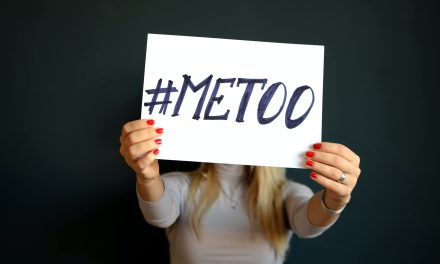Gen X feminists, shaped by the cultural landscape of the 1980s and 1990s, championed ideals that were groundbreaking at the time but have not all aged well. Once seen as empowering, many of their beliefs and behaviors now seem outdated, exclusionary, or even counterproductive. Here’s why Gen X got feminism wrong and how it affects their behavior today.
Table of Contents
How Gen X Got Feminism Wrong
- Lean-In Feminism & Individualism – The idea that women just needed to “work harder” and “lean in” to succeed ignored structural inequalities like racism, economic disparity, and the burden of unpaid labor.
- Girlboss Culture – Gen X feminists pushed the “girlboss” mentality, which often led to toxic workplace behavior, burn-out culture, and the illusion that feminism meant women could simply succeed within oppressive systems rather than change them.
- White Feminism – Many Gen X feminists failed to embrace intersectionality, often focusing on issues affecting middle-class white women while ignoring the struggles of women of color, LGBTQ+ women, and disabled women.
- Sex Positivity vs. Exploitation – While sex positivity was an important cultural shift, it often failed to account for issues like consent, coercion, and the commodification of women’s bodies in ways that ultimately benefited men more than women.
- “I’m Not Like Other Girls” Syndrome – The rejection of traditionally feminine traits and interests (e.g., makeup, romance novels, domesticity) reinforced patriarchal values rather than dismantling them.
How This Affects Gen X Feminists Today
Many Gen X feminists struggle to adapt to modern feminism, often reacting defensively to Gen Z and Millennial critiques. Some continue to double down on outdated perspectives, while others feel alienated by younger feminists who challenge their long-held beliefs.
Gen X Feminism: The Contradictions Between “Girl Power” and Protecting Abusers
One of the most troubling aspects of Gen X feminism is its tendency to minimize, excuse, or outright bury abusive and sexually exploitative behavior—while still claiming to champion women’s empowerment. This contradiction exposes deep flaws in the “girl power” narrative that many in this generation still cling to.
How Gen X Feminists Excuse or Bury Abuse While Claiming “Empowerment”
- Defending Problematic Men in Their Circles – Many Gen X feminists, particularly in professional and social settings, continue to defend men they know have engaged in predatory behavior. They justify it with “he was from a different time,” “he’s a good guy otherwise,” or “he’s changed.”
- Silencing Victims in the Name of Solidarity – When younger women or survivors speak out about misconduct within feminist or progressive spaces, Gen X feminists often dismiss them as “dramatic,” “too sensitive,” or accuse them of “trying to bring down a good man.”
- “It Was Different Back Then” Mentality – Instead of acknowledging past harm, many Gen X feminists minimize it by suggesting that sexual coercion, workplace harassment, or even assault were just the norm in their era—ignoring how harmful those norms were then and still are now.
- Over-Emphasizing Female Agency to the Point of Blame – They often shift responsibility onto victims by saying, “Well, she could’ve said no,” or “She put herself in that situation,” rather than recognizing the power imbalances at play.
- Sex-Positivity Used as a Shield for Male Entitlement – Many Gen X feminists pushed sex positivity as an ultimate form of liberation but failed to question when it was being co-opted to benefit men. This led to a culture where women were pressured into sex under the guise of being “empowered,” rather than truly having agency.
- Protecting Abusers in the Name of the Movement – Whether in Hollywood, politics, music, or the workplace, Gen X feminists have repeatedly chosen to protect powerful men rather than support the women coming forward. They rationalize this by saying, “If we take him down, we hurt the cause,” as if a movement based on justice can afford to harbor abusers.
- Girl Power as a Performance, Not a Practice – The same women who champion “girl power” will tell other women to “keep quiet” when speaking out against abuse would disrupt their social or professional networks. The message? Empowerment is great—until it threatens their comfort.
- Corporate Feminism & Selling Out Survivors – Gen X feminists who made it to positions of power in media, entertainment, or corporations often chose to protect institutions over individuals. Many participated in cover-ups, NDAs, or PR damage control instead of standing by victims.
- Dismissing Modern Feminist Movements Like #MeToo – Instead of fully embracing accountability, some Gen X feminists rolled their eyes at movements like #MeToo, suggesting it was going “too far” or “turning every bad date into assault.” In reality, they were just uncomfortable with the ways it exposed their past complicity.
- Still Defending Abusive Icons of the Past – From problematic rock stars to filmmakers and political leaders, many Gen X feminists still idolize men with well-documented histories of abuse, refusing to acknowledge how their behavior contradicted everything feminism stands for.
The Bottom Line
Gen X feminism was supposed to be about liberation, but in practice, it often protected predators, minimized abuse, and prioritized status over solidarity. To evolve, Gen X feminists must stop dismissing younger generations as “too sensitive” and start reckoning with their own blind spots. Real feminism means accountability—no matter how uncomfortable it gets.
What are your thoughts? Have you seen these contradictions play out in your life?
Gen X Feminism: The Contradictions of “Girl Power” in a Male-Dominated World
One of the most insidious failures of Gen X feminism is how deeply it internalized misogyny while still claiming to champion women’s empowerment. This generation had to navigate an overwhelmingly male-dominated culture—one where survival often meant playing by men’s rules, protecting their status, and distancing themselves from women who disrupted the system. The result? Many Gen X feminists not only looked the other way when their friends and colleagues suffered assault or harassment, but they also actively silenced, blamed, or abandoned them in order to preserve their own careers, social standing, and sense of security.
How Internalized Misogyny Has Shaped Gen X Feminism
1. The Workplace Trade-Off: Career Over Sisterhood
Gen X feminists were told they could break the glass ceiling if they didn’t rock the boat too much. This often meant:
- Looking the other way when male bosses, colleagues, or mentors harassed female coworkers.
- Avoiding friendships with women who spoke up because they were seen as “difficult” or “liabilities.”
- Prioritizing their own job security over solidarity with victims.
Instead of challenging workplace power structures, many Gen X feminists adapted to them, seeing survival as a win—even if it came at the expense of other women.
2. Silencing Victims in the Name of Self-Preservation
Women who spoke out about harassment or assault were often viewed as the problem, not the men who harmed them. Gen X feminists, rather than standing in solidarity, often:
- Encouraged their friends to stay quiet because “making a fuss” could cost them opportunities.
- Saw victims as threats to their own professional standing and sought to distance themselves.
- Resented younger feminists for pushing #MeToo and accountability, fearing it would “ruin careers” or “go too far.”
This wasn’t just apathy—it was an active investment in protecting the system they had fought so hard to survive in.
3. The “Cool Girl” & “Not Like Other Women” Mindset
Many Gen X feminists absorbed the idea that to succeed, they had to reject traditional femininity and align with men. This meant:
- Tolerating inappropriate behavior because they wanted to be seen as “one of the guys.”
- Looking down on women who showed emotion or demanded justice as “too sensitive” or “dramatic.”
- Internalizing the belief that sexual harassment was just part of the deal—something you put up with to get ahead.
Rather than demanding change, many adapted to toxic environments, reinforcing the same patriarchal values they claimed to oppose.
4. Feminism as a Branding Tool, Not a Practice
Gen X feminists championed “girl power,” but only when it didn’t threaten their own status. This is why:
- They celebrated women’s success within male-dominated industries while ignoring the exploitation that came with it.
- They cheered for a few women breaking into elite spaces but failed to fight for systemic change.
- They used feminism as a corporate buzzword rather than a call to dismantle oppressive structures.
Their feminism was often performative—loud in rhetoric but silent when real accountability was needed.
5. Defending Problematic Men to Protect Their Own Standing
One of the most damaging ways Gen X feminism failed was by excusing or defending abusive men they had personal or professional ties to. Whether in media, politics, or the workplace, many:
- Dismissed allegations against powerful men they admired as “witch hunts” or “cancel culture.”
- Blamed victims for speaking out “too late” or in a way that seemed “vindictive.”
- Refused to hold their own peers accountable, instead choosing to protect their careers, friendships, or nostalgia.
Even today, many Gen X feminists struggle with letting go of the icons, movements, and figures they built their identities around—even when those men have been revealed as serial abusers.
The Hard Truth: Survival Doesn’t Equal Liberation
The uncomfortable reality is that many Gen X feminists didn’t dismantle patriarchy—they learned to live within it. They chose survival over solidarity, adapted to systems that harmed them, and in doing so, perpetuated harm onto others.
True feminism isn’t about just getting ahead in a male-dominated world—it’s about changing the world so that no one has to make those choices in the first place. Until Gen X feminists reckon with this, their version of “girl power” will always be compromised.
Moving Forward: Can Gen X Feminists Evolve?
The question now is: Can Gen X feminists unlearn the misogyny they internalized? Can they move past defensiveness and embrace a feminism that demands real accountability, even when it’s uncomfortable?







